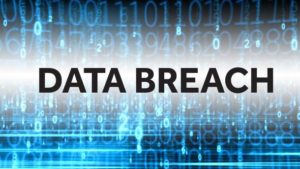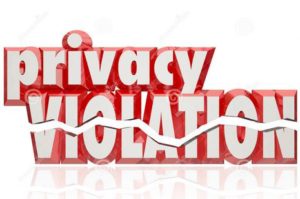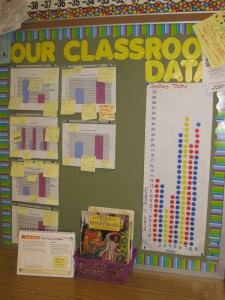Back to school season can be a busy or even stressful time for both parents and children. As the days grow shorter, the “to-do” list grows longer. Number one on the list – because of its importance and time sensitivity – should be to opt out your child from directory information sharing at school.
What is directory information?
According to the U.S. Department of Education, directory information is a limited set of personal “information that is generally not considered harmful or an invasion of privacy if released” and often includes a student’s name, address, telephone number, email address, photograph, date and place of birth, etc. It does NOT include even more intimate and sensitive personal information like test scores, grades, disability or disciplinary records that schools can legally share with companies, contractors and other third parties without parental knowledge or consent for operational, evaluation, and research purposes. The federal government has allowed these growing number of exceptions through regulatory amendments over the last decade or more, described in detail here and here.
The federal law known as the Family Educational Rights and Privacy Act (FERPA) enables schools or school districts to share directory information with any person or organization outside the school/district without parental consent — but only when the school/district provides public notice to parents first. Notice must include:
- The types of student information that the school/district has designated as directory information;
- Details about a parent’s right to refuse to allow the school/district to designate any or all of those types of information as directory information; and
- The amount of time the parent has to notify the school/district in writing that he or she does not want any or all of this information shared with others outside the school.
FERPA allows schools/districts to adopt their own directory information policies, but if they choose to provide students’ directory information to a limited number of third parties, their public notice to parents must specify the individuals, groups or companies who may receive directory information and/or for what purposes. Unfortunately, this public notice may not always be provided, and when it is, it is often difficult to find because it may be buried in hundreds of pages of information during registration, in a student handbook, a parent newsletter, school announcement, local newspaper, or website.
Most schools/districts give parents only ten to thirty days from the start of the school year to exercise their right with regard to directory information, and most offer parents a limited choice between two options:
1) Allow schools and districts to share students’ directory information with anyone including marketing companies and the media — often referred to as “opting in” to sharing directory information; or
2) Refuse to allow schools and districts from sharing directory information with anyone, including parent organizations for purposes of creating school phone directories, graduation brochures, or companies who publish yearbooks — often referred to “opting out” of sharing directory information.
This type of “all-or-nothing” approach presents a huge challenge for many parents. On the one hand, parents don’t want their children’s private information shared with anyone who requests it. On the other hand, most parents would like their children to be included in school-related publications like yearbooks, directories, brochures, and newsletters.
While FERPA doesn’t require schools to allow parents the option to select which types of directory information can be shared with whom, some privacy-minded school districts in Maryland, Montana, and North Carolina, for example, have abandoned the “all-or-nothing” approach for a “menu selection” which gives parents more control over their student’s directory information.
The Parent Coalition for Student Privacy and the Campaign for a Commercial-Free Childhood have prepared a model Directory Information Opt Out form for parents to submit to their schools at the start of the school year, as part of a larger privacy toolkit that we will release soon, via a grant from the Rose Foundation. Our Directory Information Opt Out form is designed to respect the ability of parents to choose what information they would like shared for what purposes, while also protecting their children’s privacy.
Why should parents opt out?
FERPA became law in 1974 at a time when students’ directory information was used primarily in school-sponsored publications like yearbooks, and to identify student athletes for local newspaper articles. Over the last forty years, individuals, groups and companies have recognized the value of this student information – especially with the creation and growth of the Internet – for commercial and non-educational purposes. Companies who access students’ directory information can sell it to others or use it to market products directly to students, political offices can use it to build their voter tracking systems, thieves can use it to steal identities, and perpetrators can use it to stalk students or commit other crimes.
How can parents opt out?
- Ask the school or school district for its “directory information” policy.
- If the school/district has a policy, read it carefully to find out which personal details are considered directory information and with whom it can or will be shared.
- If the policy forces parents to choose between opting in or opting out of all sharing of directory information, parents should opt out to protect their children’s privacy. However, doing so could mean that their children’s names and pictures will not be listed in the yearbook or other school-related publications.
- Share the model Directory Information Opt Out form we have prepared with the school’s principal or other school officials and encourage them to adopt a new policy giving parents more control over their children’s information.
- If the school/district does not have a directory information policy, ask if they will be sharing student’s directory information with third parties outside of the school. If the answer is yes, explain that FERPA requires that parents must be given public notice as described above, then complete the model Directory Information Opt Out form and submit it to the school/district. Follow-up in writing to ensure that the request will be honored.
Disclaimer: This commentary does not constitute legal advice. Consult a private lawyer or call your local ACLU should you have specific questions.
Download the Directory Information Opt Out from here (.docx) or here (.pdf).





